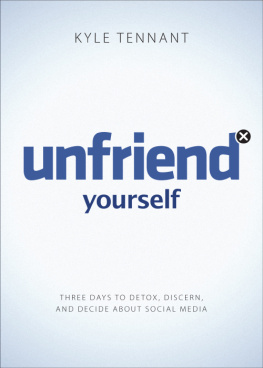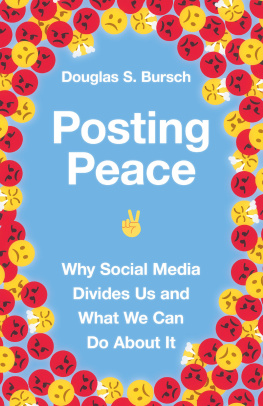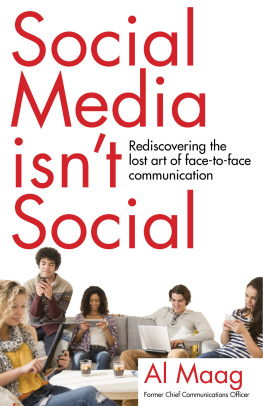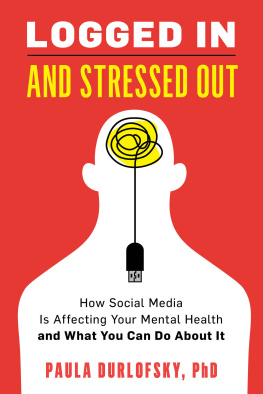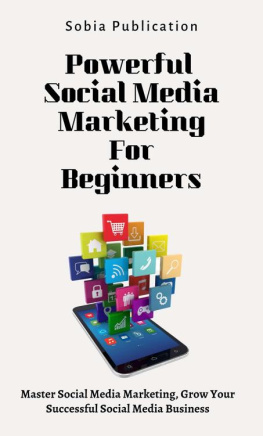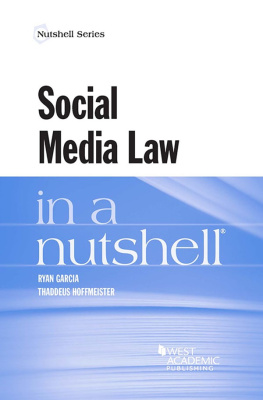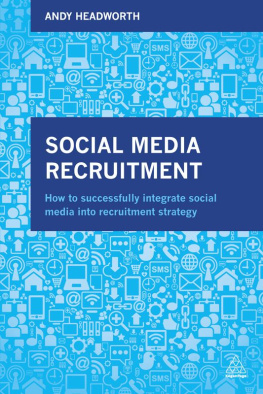Brian A. Primack - You Are What You Click: How Being Selective, Positive, and Creative Can Transform Your Social Media Experience
Here you can read online Brian A. Primack - You Are What You Click: How Being Selective, Positive, and Creative Can Transform Your Social Media Experience full text of the book (entire story) in english for free. Download pdf and epub, get meaning, cover and reviews about this ebook. year: 2021, publisher: Chronicle Books, genre: Politics. Description of the work, (preface) as well as reviews are available. Best literature library LitArk.com created for fans of good reading and offers a wide selection of genres:
Romance novel
Science fiction
Adventure
Detective
Science
History
Home and family
Prose
Art
Politics
Computer
Non-fiction
Religion
Business
Children
Humor
Choose a favorite category and find really read worthwhile books. Enjoy immersion in the world of imagination, feel the emotions of the characters or learn something new for yourself, make an fascinating discovery.

- Book:You Are What You Click: How Being Selective, Positive, and Creative Can Transform Your Social Media Experience
- Author:
- Publisher:Chronicle Books
- Genre:
- Year:2021
- Rating:5 / 5
- Favourites:Add to favourites
- Your mark:
You Are What You Click: How Being Selective, Positive, and Creative Can Transform Your Social Media Experience: summary, description and annotation
We offer to read an annotation, description, summary or preface (depends on what the author of the book "You Are What You Click: How Being Selective, Positive, and Creative Can Transform Your Social Media Experience" wrote himself). If you haven't found the necessary information about the book — write in the comments, we will try to find it.
Internationally acclaimed behavioral scientist and social media expert Brian Primack, MD, PhD, believes we do not need to swear off social media, delete all our online accounts, or give up our phones to live healthier, happier lives. In You Are What You Click, he offers a new approach to digital wellness, and a realists perspective on how what we consume online affects our well-being. In response, he presents a social media pyramid that personalizes our tech diet so we can enjoy a fruitful, balanced relationship with social media.
While many of us turn to social media looking for a sense of connection and comfort, the data show that it may paradoxically leave us feeling more alone and depressed. Drawing on over twenty years of original research, Dr. Primack explains the fascinating nuances of our relationship with social media, its impact on our mental health, and the dangers of social media using us instead of the other way around. He empowers us to take back control with a simple method: being more selective, positive, and creative with our lives online.
Dr. Primack introduces surprising strategies you can use right away to fine-tune your online experience and discover your definition of digital balance. Through short, actionable chapters, youll learn how to:
Tailor your social media use to your personality.
Select positive relationships over toxic ones.
Overcome comparison syndrome and the fear of missing out.
Fill your feed with meaningful, humorous, and uplifting content.
Optimize your news intake and resist doomscrolling.
Improve your sleep, create tech holidays, and more.
With innovative strategies for managing technology, youll transform your relationship with tech and discover how to make social media work for you.
You Are What You Click offers a science-backed approach from a credentialed doctor: Dr. Brian Primack has an MD and a PhD in Education and Behavioral Science. Primack is the go-to expert on this topic. His work on the intersection of media and health has been cited nearly 6,000 times in peer-reviewed scholarly literature, and he has been featured in major media outlets across the world.
FOR WELLNESS READERS, PARENTS, AND ANYONE WHO USES SOCIAL MEDIA: Dropping off the digital map or deleting all our social media accounts isnt the only optionand often isnt something we feel ready to do. Rather than digital abstinence, with Primacks 3-step plan, tech lovers will be able to understand how to regulate their online social platforms in healthier ways.
A BALANCED PERSPECTIVE ON TECHNOLOGY AND SOCIAL MEDIA IN A POSITIVE LIGHT: Almost every book in this genre portrays technology in a negative or even scary way. With this book, readers will learn how to adjust and balance their presence online with a personalized plan they can use across all platforms, no matter what new social media app goes public next. Primack offers an empowering solution that is forward-thinking, and will continue to be relevant as technology becomes more immersed into our lives.
QUICK, PRACTICAL ADVICE:You Are What You Click is broken into short, actionable chapters that allow readers to understand the research, take action, and see resultsperfect for short attention spans whittled down by Facebook and Instagram stories, Twitter, Snapchat, and TikTok!
FOR FANS OF PERSONALITY BOOKS: Fans of books like The Road Back to You: An Enneagram Journey to Self-Discovery and The Four Tendencies: The Indispensable Personality Profiles that Reveal How to Make Your Life Better will love the personality quiz and personalized solutions Primack offers for being selective, creative, and healthy with social media use.
Brian A. Primack: author's other books
Who wrote You Are What You Click: How Being Selective, Positive, and Creative Can Transform Your Social Media Experience? Find out the surname, the name of the author of the book and a list of all author's works by series.

